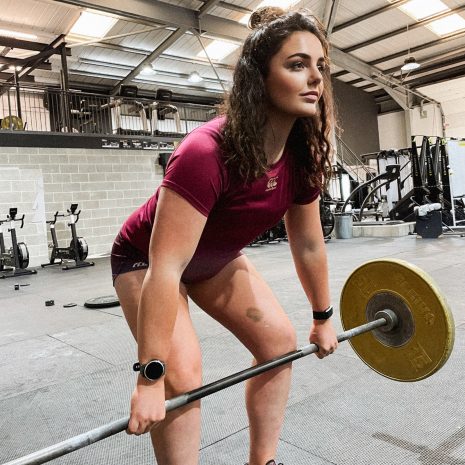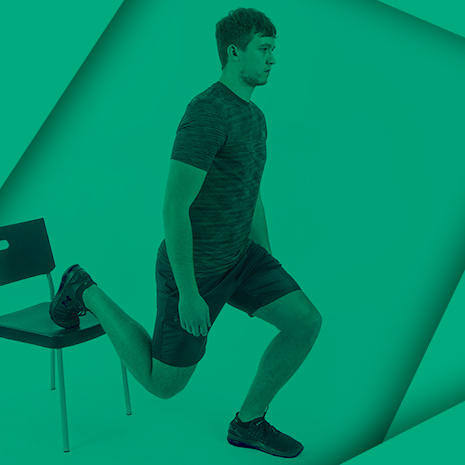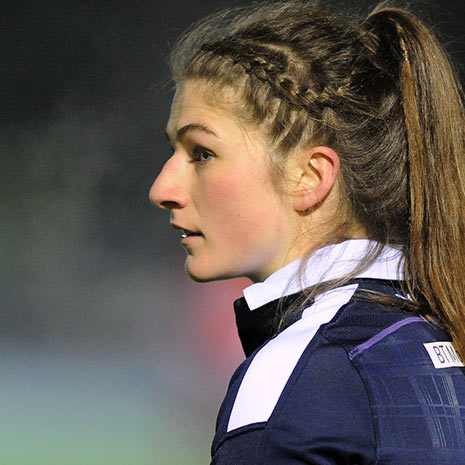Trying to balance rugby club training, gym training and a full time job can be a real challenge for many young athletes. When I finished University and went from a part time job to a full time job, I soon realised that I didn’t have nearly as much time to prepare my meals whilst also fitting in my training sessions.

Throughout the last 4-5 years playing at a regional and international level I have had a number of coaches as well as nutritionists who have given me some great tips on how to manage my nutrition without it taking up all of what little time you have.
There are many aspects of rugby that you can’t control, but what you put in your body is one aspect you have complete control of, and is something that requires no skill or talent!
What you eat is one aspect you have complete control of!
Understanding the basics is essential to making sure that you are able to fuel your body effectively to be able to train and play at both your mental and physical potential.
These nutritional guidelines should be in the back of your mind for every training session that you take part in.
ENERGY
Before you start a training session it’s essential that you have a small meal or snack containing some carbs, protein and fruit or vegetables as well as plenty fluids to ensure you are hydrated.

Some of my favourites include:
- Yoghurt, granola and fruit
- Peanut butter and banana on toast
- Granola bar
RECOVER
This is a quick snack that is taken straight after your training session, it should be something smaller than your pre-training meal. This meal plays the most important role in supplying your muscles with the nutrients to repair and recover from the damage caused by training. There is no need to fill up straight after a session as you will be having your main evening meal shortly.
Examples include:
- Fruit and nuts with a smoothie
- Natural peanut butter on a rice cake
REFUEL
This is your main evening meal. It should contain carbohydrate, protein and vegetables.

Easy meals you can batch cook include:
- Wholemeal spaghetti bolognese
- Chilli with brown rice and vegetables
HYDRATION
Staying hydrated is absolutely essential to your mental and physical performance, water is the most important part of my diet. Dehydrating by just 3%, which is 3kg for myself, can reduce my strength by 10% and speed by 8%, while also increasing the chance of picking up an injury.
So it is really helpful if you have some scales in the changing rooms where you can have a quick look so you know exactly how much water you need to drink.For every 1kg that I lose in sweat I am to drink 1.2 kg of water.
Following this basic info can allow you to have peace of mind, knowing that you have done what you can to help perform at 100%.
Here are some of my top takeaways to help you ensure that you are always fuelled up on a balanced diet and are able to train and play to your full potential.
1. Eat Often and Snack
In order for your muscles to repair and grow you should be eating every 3-4 hours a day. High-performance athletes should be eating 5-6 times a day. This includes snacks which should include good quality carbohydrate and proteins. Snack whenever you feel hungry or feel you need an energy boost!

2. Eat as much colour as you can
Eat as large an array of coloured fruit and vegetables as you can to ensure you are getting essential minerals and vitamins.
3. Re-Fuel
Eating straight after training is essential in order for your body to start its recovery. Your muscles cannot begin to recover without the building blocks of carbs and protein. A quick snack of fruit and nuts before your main meal an hour after the session is essential to ensure recovery for the following days training!

4. Drink Water
Being even 3% dehydrated can reduce strength by 10%, hydration helps your body to function properly, ensure you always have a water bottle with you so you can stay topped up throughout the day. If you feel thirsty, you are already dehydrated. During training you should consume 250ml of fluid every 15 minutes.
5. Carbs and Fats aren’t all bad!
Consume unrefined carbohydrates such as brown rice, whole grains, oats, fruit and vegetables. Carbohydrate are your major fuel source when training. Fats are also essential for you to play at your full potential! 1g per kg of your bodyweight should come from healthy fats such as avocados, seeds and nuts and oily fish.

6. Get enough protein
You should be eating about 2g of protein per kg of bodyweight, to give you an idea. This is why eating often is so important, don’t skip protein at breakfast!
7. Buy some Tupperware
Prepare food before you leave the house, know how long you will be away so you can make sure you have snacks and plenty water.
After a hard training session I’m always tempted to treat myself or stop in at the drive through on the way home. Every so often this is fine, but don’t get into the habit! Ask yourself if it will benefit your performance, and if the answer is no, then give it a miss.
This Naughty and Nice list will help you to understand what foods you should be incorporating into your diet and what you should start to remove from your diet to make sure you are fueling your body as effectively as you can.

This advice should allow you to be able to eat a healthy balanced diet whilst being able to live a balanced lifestyle with your sport, work and social life not having to take a hit.
About the author
Ruairidh is an amateur rugby player from Scotland who has a full-time job. He has played at a regional and international level and currently plays in the Scottish BT Premiership. He successfully balanced studying his degree, with playing in the U20 Six Nations and U20 World Cup. During this time he had a number of highly qualified strength and conditioning coaches and nutritionists, who imparted their knowledge on him. He is, therefore, able to pass on the theoretical knowledge, as well as the practicalities, of what is required to balance a professional approach to training with a full-time job/busy day to day life




Comments